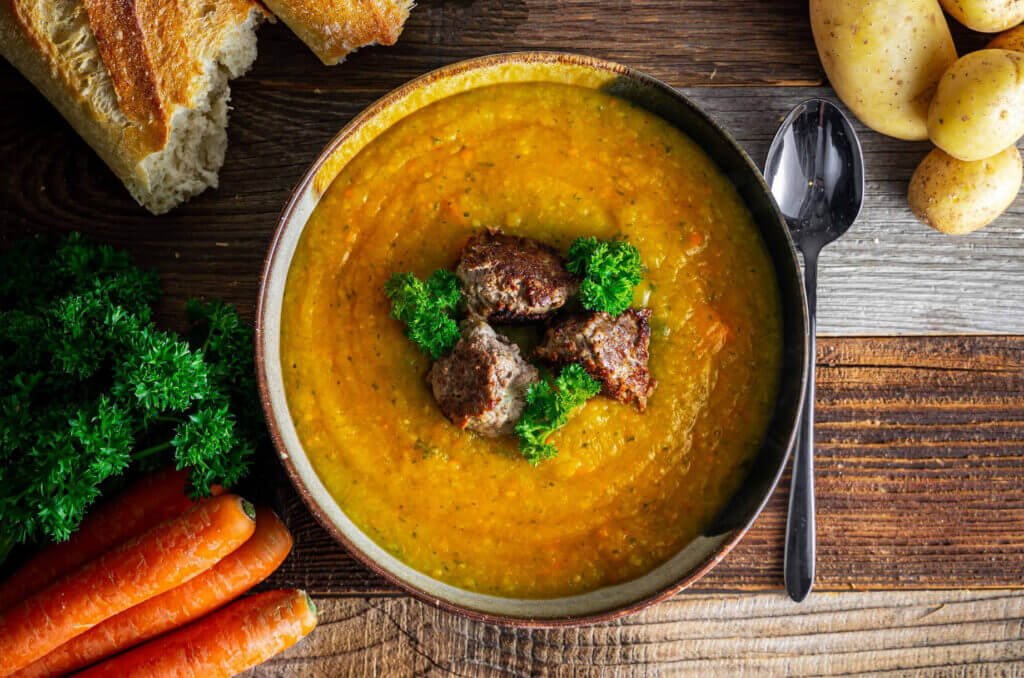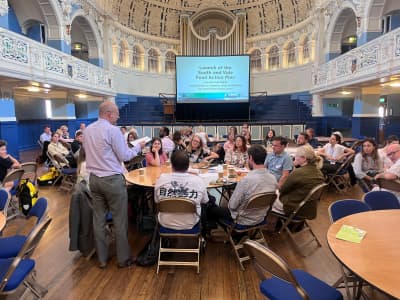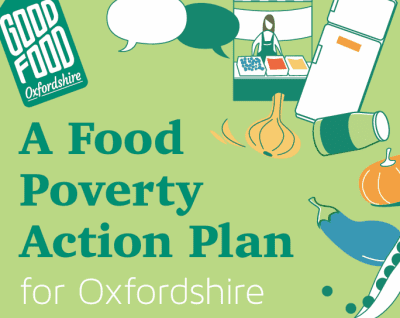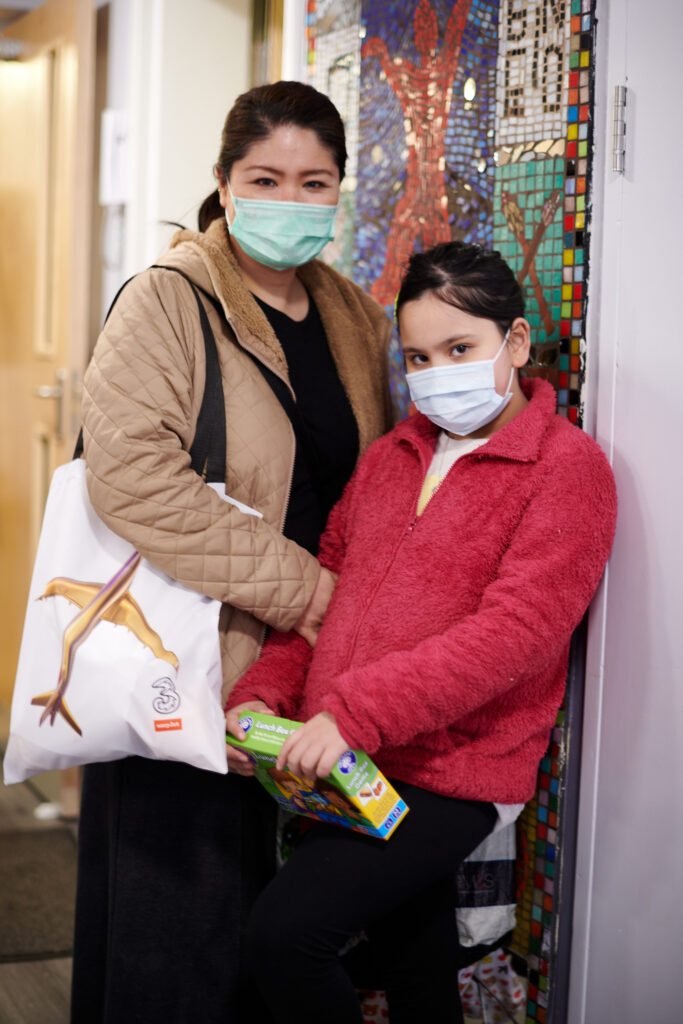
Users of Cutteslowe Community Larder. Photo by Louise Long Photography.
During COVID-19 BAME communities were 2 x more likely to experience food insecurity.
In January 2021, 20% of BAME households in the UK had experienced food insecurity in the previous 6 months compared with 9% of White British households.
Source: Food Foundation, 2021
What we heard from people in Oxfordshire
In late 2020 and early 2021 Good Food Oxford hosted two focus groups with participants from BAME communities to listen to their experiences of accessing food services during COVID-19. Participants had a wide range of nationalities including Iraqi, Iranian, Algerian, South African, Pakistani, Bangladeshi, Syrian and Afghani. Participants had been invited to attend through partner organisations including The Oxford Living Wage Campaign, African Families in the UK, Oxford Community Action, Banbury Mosque, Refugee Resource, Iraqi Women Art and War, SYRCOX. The sessions were facilitated by Jabu Nala-Hartley, Chair of the Oxford Living Wage Campaign.
Food related issues faced by participants’ communities
People experienced feelings of shame and stigma using Foodbanks. what people wanted was for food to be more affordable and to have sufficient income to buy their own food/ make their own choices.
Low unstable incomes lead to hard choices. Choosing quantity over quality; eating one big meal a day
Healthy, culturally appropriate food is expensive in Oxford. Buying culturally appropriate foods such as halal is much more expensive in Oxford compared with other cities. People even travel to London or Birmingham to stock up on basics. A whole sheep costs £37 in Birmingham but £80 in Oxford.
Food parcels are often culturally inappropriate and can lead to food waste. Participants were extremely grateful for emergency food support they received and acknowledged that the balance of foods in parcels had improved since the initial lockdown. However, people were still receiving foods that that they were not used to eating such as tinned soups and beans and some of this went unused. Participants did not feel as though they could refuse the free food or express preferences.
Understanding food labels presented difficulties for some and contributed to food waste. Participants were not always clear on the differences between use-by and best before dates. Where food labels were not in a language that the participants could read this created stress and uncertainty and contributed to more food waste as people naturally err on the side of caution.
Experiences of oppression and legal insecurity leave many hesitant to engage with formal services. Many participants knew of community members reluctant to access services – food, advice, health – due to a mistrust of formal services. Where support was delivered via trusted community members it was far more openly received.
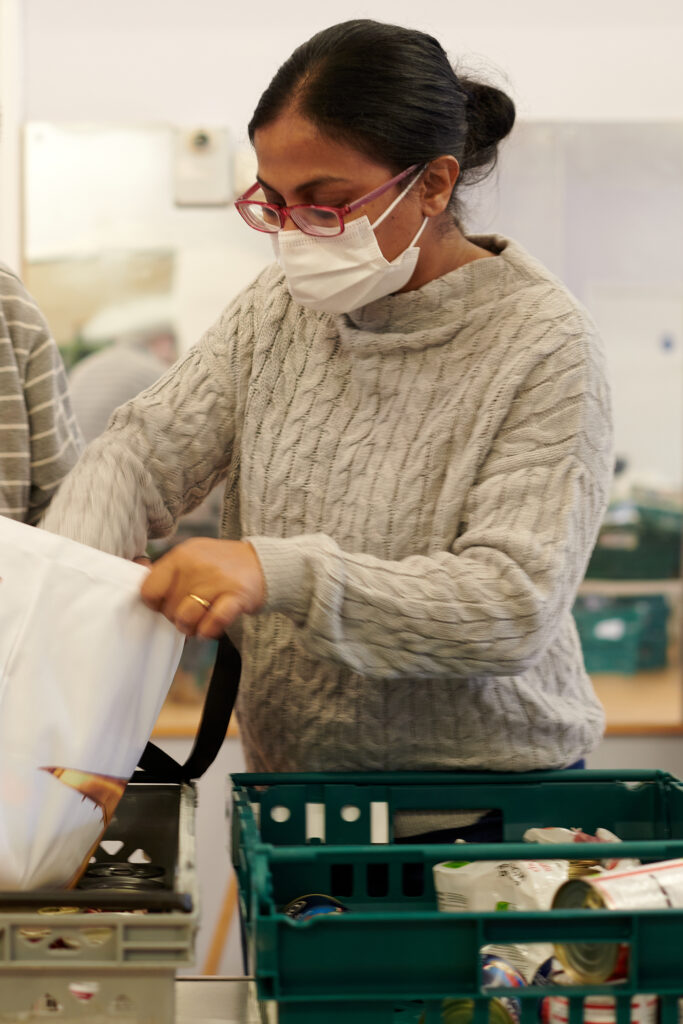
A user of Cutteslowe Community Larder. Photo by Louise Long Photography.
Opportunities for more positive food experiences for BAME communities
Food banks provide a valuable resource for many participants but allowing choice of items would reduce waste and improve dignity. Knowing that food is available removes stress and enables people to focus on other areas of their life.
Food is a connector and a way for communities from different cultural backgrounds to come together to share food. Many people spoke of the value of the shared experiences they had around food during COVID-19 – how supporting each other with food had brought a deeper sense of community. People expressed a desire to build on this foundation and come together to socialise around food when in-person events can resume.
“What if we could have a huge celebration where everyone cooks different dishes and share in a big party – like a celebration of diversity and life.”
Focus group participant
Community-led services can build trust, social capital and deliver culturally appropriate services for BAME communities. Trust was a huge factor in enabling people to engage with food and other support services during COVID-19. Where services were delivered by a friendly face, speaking a familiar language and being part of the same community enabled people to access services they needed.
“The message is loud and clear – that to build access, trust and create culturally appropriate services, communities want to see support designed and delivered with their input, within community settings, and building on community networks.”
OCA, 2021
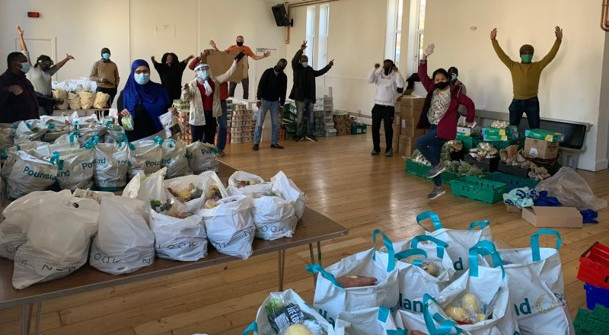
Oxford Community Action packing food parcels during the COVID-19 lockdown in 2020
People were keen to expand their cooking skills and share these within their community. There were mixed levels of confidence in cooking skills. Some participants felt confident in cooking food from their own culture but had little knowledge of other cultures and were keen to learn more. One participant commented that her children wanted a Sunday Roast because that was what their friends ate but did not know how to prepare this.
More healthy, culturally appropriate food at affordable prices available locally. People did not want to travel to get the food they needed but ultimately affordability of healthy food is the biggest driver for many. Local growing projects that could engage communities in producing their own food as well as providing the types of food people want such as rice, yams, herbs and spices would be welcome additions.
Actionable points and learnings for Good Food Oxford
Promote and support food events that are community-led and engage communities in sharing food and cultural food experiences.
Develop the Good Food Cooking Toolkit in a range of languages.
Support the development of growing projects that engage communities and produce the crops that people want.
Ensure that Cooking Tutor Training Programmes reach a range of communities and are designed around the needs of these communities.
In future focus groups, invite participants to bring someone to help with language barriers where needed and give more time to enable participants to translate for each other.
